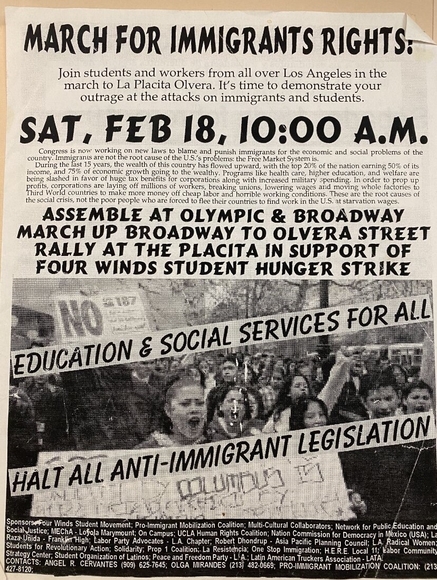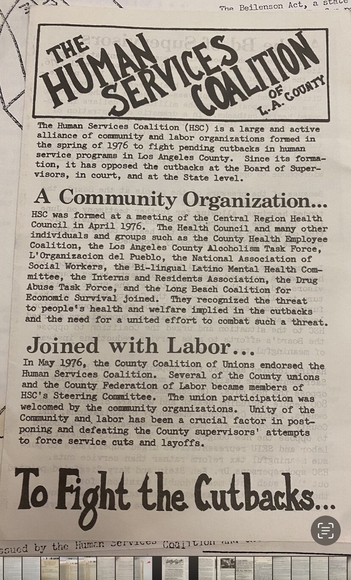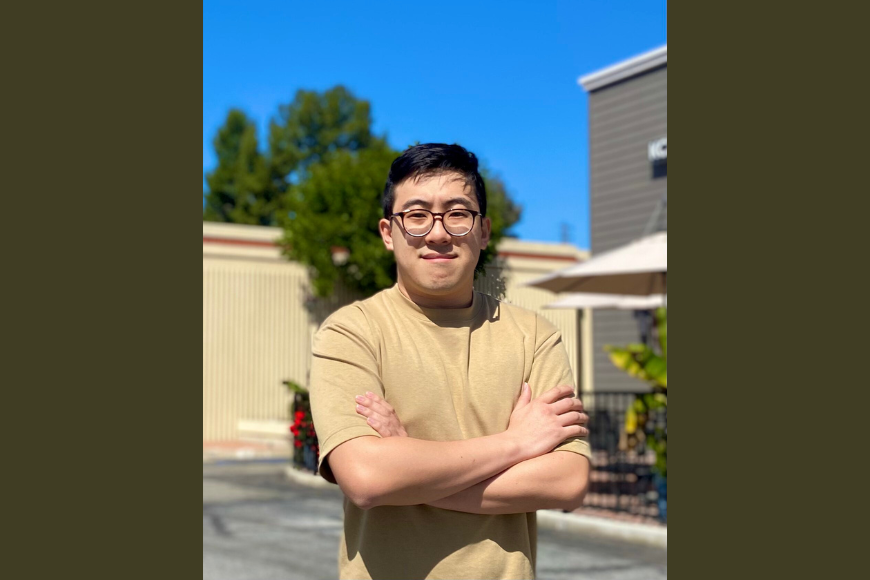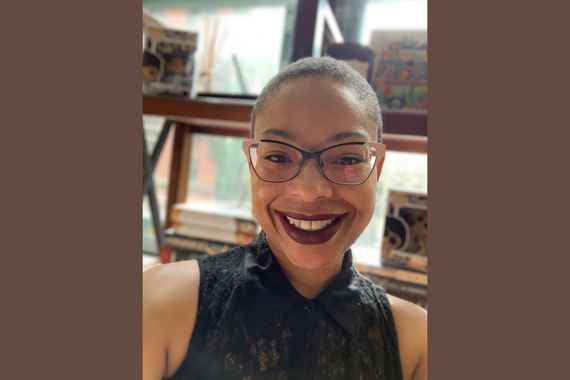Reconsidering the Conditions for Liberation
Richard Lim (PhD Student in American Studies) studies the landscape of inter-racial political activism in Los Angeles, using a variety of disciplinary lenses to draw out and examine points of intersection and divergence often overlooked by mainstream discourses on coalition building. Additionally, he seeks to answer the heady question of: how can politics based on issues of immigration become the conditions of possibility and transformation of entire communities?
Ethnic Studies and Activist Groundings
Richard comes from a unique Ethnic Studies academic background, having completed his Master’s studies at San Francisco State’s Asian American Studies program, one of only two graduate programs in Asian American Studies in the country. This background has given him the tools and mindset to continuously critique the boundaries of knowledge. In particular, he applies a critical Ethnic Studies perspective to the issue of political organizing against injustices. Richard lays out how political strategies based in liberal notions of what racial justice looks like can unconsciously reinforce the conditions for injustice in the first place as well as undermining the struggles of other groups. His work is also informed by continual participation in the communities about which he writes. As one example, working as an English teacher in public school classes for students descended from Southeast Asian refugees allowed Richard to gain a sense of the opportunities available to and the constraints faced by Southeast Asian communities, as well as the ways in which they interacted with neighboring communities.
These experiences led Richard to become a policy researcher for Stop Asian American and Pacific Islander (AAPI) Hate, which was founded to confront anti-Asian American violence at the start of the pandemic. This allowed him to directly participate in the work of forming community coalitions dedicated to specific political goals. Richard found that these organizations were drawn together through the shared articulation of the argument that Asian American people belong to the American national polity and that the violence against them stems from long histories of exclusion from full citizenship. How the coalition would respond to attempt to curb that violence though was a more complicated matter. The constituent organizations were sensitive to the fact that enlisting a greater police presence had the potential to harm other overpoliced communities of color with whom they shared space, especially amidst the ubiquitous awareness of police violence so close to the murder of George Floyd. Stop AAPI Hate gathered robust data on the prevalence of hate incidents faced by Asian Americans with the primary purpose of putting actionable numbers to the atmosphere of hostility faced by Asian Americans. However, they came to understand that contrary to their intentions, the data was also being used to validate pro-carceral policy such as the Covid-19 Hate Crimes Act. Richard noted that the rhetoric around these policies tended to describe the violence faced by Asian Americans as aberrant and un-American, failing to take into account the myriad ways in which anti-Asian sentiment has been manifested throughout American history.

Collection 2115, Box 36, Folder 4, Rosario Munoz Papers, UCLA Special Collections.
While Richard’s work is inherently political and he has extensive experience working with political organizations, he finds that the American Studies PhD program is a freeing, interdisciplinary space where he can investigate questions around race and politics in a way that transcends the limitations of mainstream political thinking. He believes that there is great value in elucidating political problems from unique and generative perspectives. He says that, “it has given me a great privilege and responsibility to write in such a way that I don’t have to worry about thorny political questions that would otherwise make a project like this inconceivable… I’m fortunate to be able to do my work in a space that allows me to communicate ideas that might seem complex or even awkward to organizers on the ground.” He sees the university as a site of possibility for testing ideas that would be difficult or impossible to implement in current political contexts, but which could inform a new, more liberatory approach to politics in future.
Theoretical, Archival, and Community-Based Research
Richard’s thinking draws on an interdisciplinary pool of theorists. He credits Lisa Marie Cacho, whose work on Social Death informs his analysis of immigration discourse through which, he argues, a rights based discourse to belonging can unknowingly reinforce the conditions of migrants, including undocumented individuals’ exclusion. He connects this to the troubling phenomenon of policies concerned with protecting queer people from violence resulting in generating and legitimizing police violence against overpoliced communities as well as increasing defense spending to act as a global policing force. The highly visible bursts of violence directed at targeted marginalized groups often result in predictable political responses promoting greater policing.
Additionally, using an analysis of David Gutiérrez’s Walls and Mirrors, Richard parses the various contexts and priorities that gave rise to very different Mexican and Chicano organizing groups, noting that there are important differences between Latinx refugee rights-based organizations and Mexican labor-based organizations. Any scholarship attempting to study contingencies for coalition-building needs to keep this specificity in mind so as to avoid painting groups with demographically similar constituencies with the same political brush.

Collection 2115, Box 36, Folder 4, Rosario Munoz Papers, UCLA Special Collections.
Richard’s archival research over the summer sought to locate activists’ attempts to subvert cyclical political patterns and identify new possibilities for advocacy. The GRPP fellowship allowed him to partner with Chicano & Latino Studies Professor Jimmy Patiño and to take time to build relationships with the organizers who inform his writing, getting to know them and the contexts of their work before using more formal oral history methodologies. This is a crucial part of the research process which allows for a more organic, less extractive way to gather information. For example, he was able to participate in collaborations between the organizations AWARE (Alliance Working for Asian Rights and Empowerment) and “Los Amigos,” an Orange County based Latinx civil rights collective, to build capacity to counter the problem of racial profiling in Orange County, California, that impacts both Latinx and Southeast Asian youth.
His archival research also looked into organizers’ response to California’s Proposition 13, enacted in 1978, which capped the raising of property taxes, mostly to the benefit of wealthier, largely white landowners and at the expense of secondary and higher education funding and other social services. These cuts were accompanied by increases to policing budgets. Activists at the time like Rosalio Muñoz’s Immigration Coalition drew connections between these policies and argued that they were part of a broader effort to legitimize state violence through administrative reallocations of funding. Through pressure on legislators, activists won a concession requiring a grace period for public comment before further budget cuts were made. While these were valuable contributions to shifting the balance of power in the public political space, Richard sees these outcomes as still demonstrating the limitations of neoliberal political debates which shelve the representation and needs of undocumented immigrants in favor of those seen as more legitimate.
These are just a few of the threads which Richard is weaving into a project which seeks to bring decades of activism to bear on our current political moment. Zooming in and out of California’s history of labor, immigration, and racial-justice based political organizing, Richard is gaining an understanding of the traps set by neoliberal politics which promise reform and relief in the present, but at a cost of delegitimizing the needs of others and of reinforcing the conditions which harm communities in the future. To theorize an escape hatch from these cycles requires a birds-eye view of politics and activism over the decades, but to implement these strategies will require coalition-building and political energy on the ground on a massive scale. Richard will continue to be a part of that project throughout his career.



